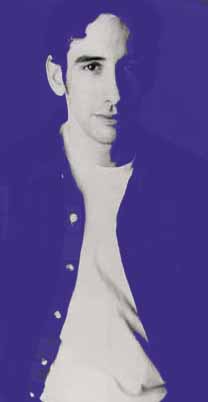"Sure, you'd get guys who'd say, 'I'm proud to be a Jew,' but to say, 'I'm glad to be a Jew'? You'd have to be some kind of nut! What are you, a masochist?"
Lenny Bruce
In my first year after college in the Midwest, I stayed within the orbit of my school by working a collections job just off-campus. As jaded urbanites we might expect that at this point there are few truly outlandish stereotypes about Jews left in the American collective unconscious, but when the staff accountant, a woman in her late twenties originating from a family of Jehovah's Witnesses, discovered that I was of a Jewish background her first two questions put lie to that assumption.
"Now, don't all Jews have them li'l curly thangs coming down from their temples?" she drawled.
And a few months later, of course: "Isn't it true y'all are really good with money?"
Granted, this woman was not exactly worldly, but to have almost reached thirty in this age without the ability to discern rumor from reality seemed willfully naive. I would have never had the balls to ask her if she'd ever gone door to door with copies of The Watchtower.
Yet at least the first question could have been posed by an adolescent yeshiva kid: for them, all Jews do have payos, and if you don't, well, you're obviously not a Jew. An Orthodox Jewish former coworker, when I mentioned the documentary Trembling Before G-d, assured me there were no homosexual Orthodox Jews. They were not in abject denial: by their definition, one ceased to be an Orthodox Jew if one were gay. The question of Jewish identity has been reduced to checklists for many, and I don't know that I'd put up too much of a fight if someone wanted to make the argument that I wasn't a Jew. There's nothing really at stake for me.
 Speaking of identity, at this collection agency we used pseudonyms so no
debtor would be tempted to look us up to settle their bills by unprescribed
methods. One of my colleagues chose the last name 'Hunter," after Hunter S.
Thompson. In the same vein, I went by Kenneth Rushkoff, after the social
and media critic whose book Cyberia: Life In The Trenches of Hyperspace
changed my life at age 19, Douglas Rushkoff. That book revealed such a
operative change in thinking, presented in the form of the people who
exemplified it, that in time it sped trends in my own thinking away from
corporate aspirations and towards the more self-deterministic.
Speaking of identity, at this collection agency we used pseudonyms so no
debtor would be tempted to look us up to settle their bills by unprescribed
methods. One of my colleagues chose the last name 'Hunter," after Hunter S.
Thompson. In the same vein, I went by Kenneth Rushkoff, after the social
and media critic whose book Cyberia: Life In The Trenches of Hyperspace
changed my life at age 19, Douglas Rushkoff. That book revealed such a
operative change in thinking, presented in the form of the people who
exemplified it, that in time it sped trends in my own thinking away from
corporate aspirations and towards the more self-deterministic.
Rushkoff, despite dispensing with any pretense of impartiality about the revolutionary social impact of mass and new media on our culture, particularly youth culture, has become something of a Rorschach test to readers: either he's declared herald of the incoming age of bottom-up systems of organization, legitimizing the bleeding-edge of the fringe, or he's accused of playing at best a Pollyanna and at worst a double agent for media monopolies. In reality, he walks in others' shoes, paying attention to street signs and traffic, but while those shoes may fit, he's not necessarily buying them. Long before the Internet bubble burst in 2000 he was warning of its demise, which earned him not a little resentment from those who expected him to be their unflinching cheerleader. Many then turned around and blamed him for helping to speed the inevitable crash by sheer prognostication.



Symposium on
Douglas Rushkoff's
Nothing Sacred:
The Sacred and the Profane
A Conversation with Douglas Rushkoff
Reinventing the Wheel: A Review of Nothing Sacred
Michael Shurkin
They Gonna Crucify Me: A 'Lapsed Jew' Responds to Nothing Sacred
Ken Applebaum
Plus these other attractions:
Meditation and Sensuality
Jay Michaelson
Anything You Want to Be
Ben Cohen
Not Mentioned
Hal Sirowitz
Josh Graduates High School
Josh Ring
Zeek in Print
Spring 03 issue available here
Saddies
David Stromberg
about zeek
archive
links